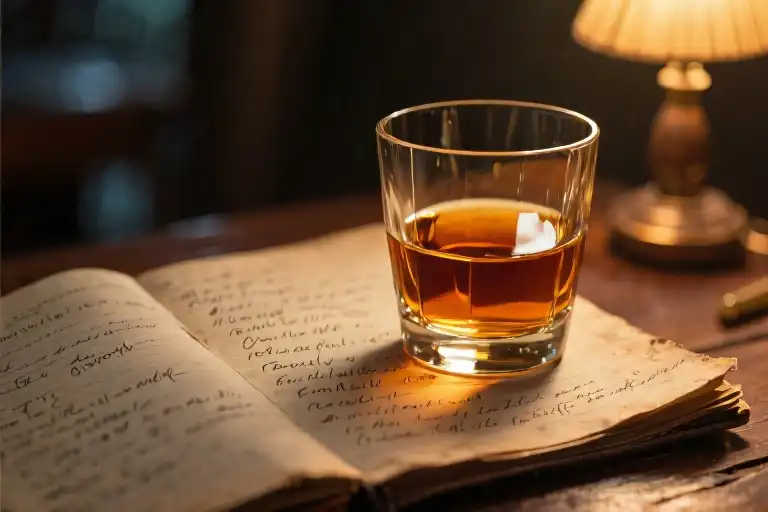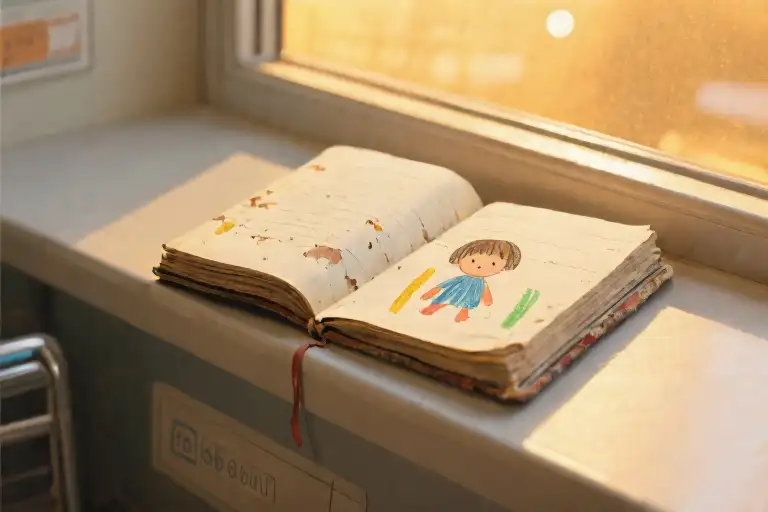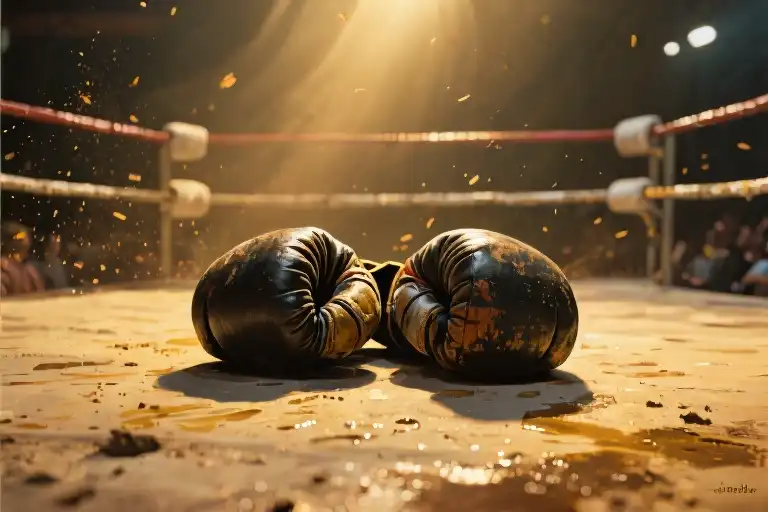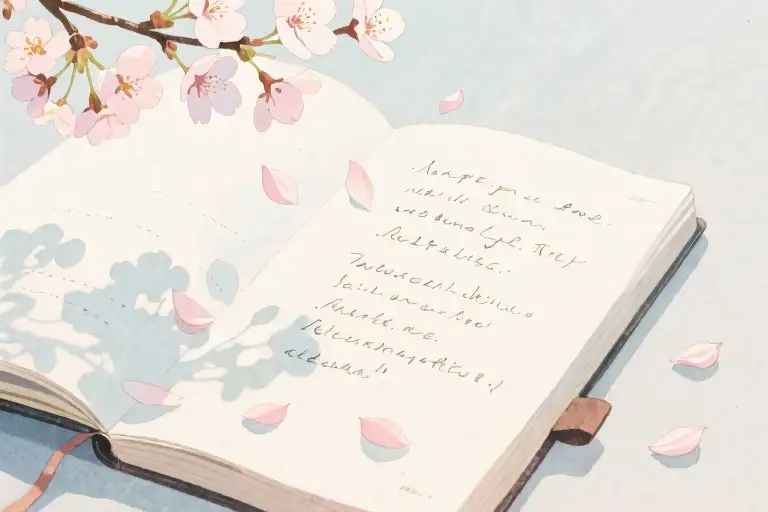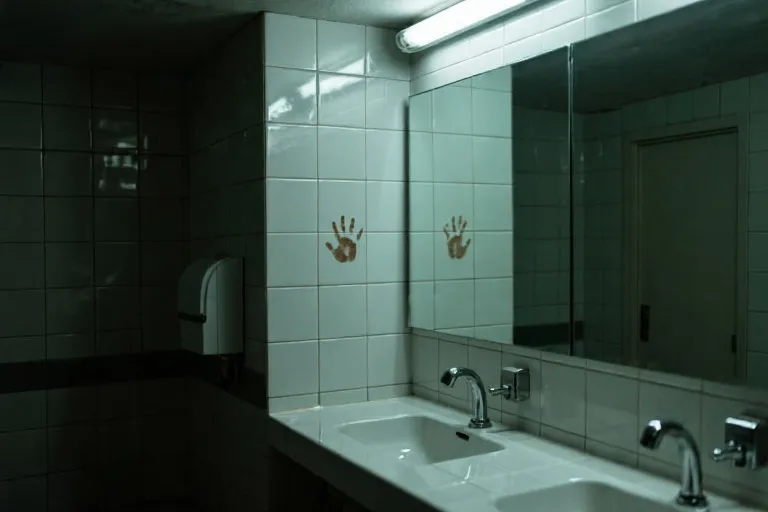The amber glow of the Maker’s Mark Private Selection caught the lamplight as I tilted the bottle, watching the last viscous trails cling stubbornly to the glass before surrendering to gravity. That peculiar physics of bourbon – how it moves slower than water, leaving behind translucent fingerprints on its descent into the waiting tumbler. The glass, etched with my name, accepted the liquid like an old friend receiving confessions.
Three fingers of liquid sunset pooled at the bottom, releasing caramelized vanilla and charred oak aromas that seemed to unpack childhood memories before the first sip even touched my lips. My favorite faded t-shirt’s prophecy stretched across my chest: “Bourbon goes in, Wisdom comes out.” Tonight, both would flow freely.
Ice cubes cracked their knuckles as they adjusted to the unfamiliar warmth, their crystalline edges already softening into milky curves. I swirled the glass absentmindedly, noting how the whiskey’s legs crawled downward at varying speeds – some rushing like hasty apologies, others lingering like unresolved questions. The bourbon’s 46% ABV promised just enough alcohol to loosen thoughts without drowning them, that perfect equilibrium between liquid courage and liquid truth serum.
Outside the bay window, suburban silence pressed against the glass while inside, the whiskey’s sweet smokiness began its subtle alchemy – converting guarded thoughts into vulnerable admissions. Maker’s Mark had engineered this particular batch with extra French oak staves, creating a spirit that tasted like forgiveness feels: complex, slightly painful at first, then overwhelmingly warm.
My laptop screen dimmed as the writing app idled, the cursor blinking in patient rhythm with the kitchen clock. Both would wait. Some stories demand to be written in ink, others in Kentucky straight bourbon whiskey. Tonight’s narrative would flow in both mediums – one through fingertips on keys, the other through shared confessions over long-distance phone lines. The stage was set for that rare convergence where alcohol, intimacy and wisdom temporarily align.
As the first sip traveled its familiar path – the initial burn at the tip of the tongue giving way to vanilla sweetness, then the peppery Kentucky hug in the chest – I didn’t yet know this would become one of those nights where father-daughter relationships get examined under bourbon’s amber microscope. But the whiskey knew. It always does.
The Ripples in Whiskey When the Phone Rang
The amber liquid swirled gently in my glass as the ice cubes clinked against the sides, releasing tendrils of vanilla and charred oak aromas that seemed to carry decades of stories in their wake. Maker’s Mark Private Selection always had this effect – the first sip transporting me to some Kentucky rickhouse where time moved slower and truths felt closer to the surface. I was savoring that third pour when the phone’s sudden vibration sent concentric waves across the bourbon’s surface, like visual echoes of the conversation about to unfold.
Conie’s laughter filled the room before she even answered, that particular maternal lilt reserved only for her daughter Frances. At 22, the San Diego-based college graduate was navigating adult decisions – tonight’s agenda being the pros and cons of used car financing. I smiled into my drink, letting their rapid-fire Tagalog-English hybrid dialogue wash over me. There’s something sacred about mother-daughter banter, an encrypted language of inside jokes and shared history that creates its own gravitational field.
‘Wait, wait – tell Kuya Kyle the mileage question you asked me,’ Conie suddenly turned, holding the phone toward me. The warmth of 45% ABV courage made me lean in. ‘She wants to know if 80,000 miles on a 2018 Honda is like Filipino 80,000 or American 80,000.’ We burst into knowing laughter – that particular immigrant calculus where every mechanical statistic gets mentally converted through the prism of Manila’s potholed streets. The bourbon’s caramel sweetness intensified as it mingled with this moment of cultural shorthand, Costardi’s 2015 research on ethanol lowering social inhibition playing out in real time.
Frances’ voice took on new texture when the topic pivoted from carburetors to something more vulnerable. I watched the whiskey’s legs slide down the glass like slow tears as she confessed, ‘I just don’t think maintaining this…performance with Papa is worth the energy anymore.’ The pause that followed wasn’t empty – it was dense with the unsaid, like the concentrated flavors at the bottom of a whiskey barrel. My fingers instinctively tightened around the glass, its Kentucky limestone-filtered contents suddenly mirroring the emotional hard water we were about to navigate.
What happened next surprised even me – the way three ounces of bourbon could dissolve decades of paternal distance into something speakable. The alcohol wasn’t blurring reality so much as bringing its contours into sharper focus, like the magnifying effect of a Glencairn glass on whiskey’s deeper hues. When Frances finally asked the question she’d been circling – ‘Do I owe him anything?’ – the amber liquid in my glass caught the lamplight just so, illuminating answers I didn’t know I’d been aging all these years.
The Alcohol Solubility of Daddy Issues
The amber liquid swirled gently in my glass as Frances’ voice trailed off through the phone speaker. That telltale elongation of her final syllable – “anymorrre…” – hung between us like the caramel notes of the Maker’s Mark lingering on my palate. In that stretched moment, I recognized the universal cadence of unresolved father-daughter relationships, a rhythm as familiar as the slow drip of bourbon down an ice cube.
“My father lives less than an hour away,” I found myself saying, watching the condensation bead on my glass, “and I probably see him slightly more than you see yours.” The paradox of physical proximity versus emotional distance struck me anew. Modern psychology confirms what children of absent parents know instinctively – that 7,000 miles can feel closer than a one-hour drive when measured in emotional availability. Pew Research data shows adult children with geographically close but emotionally distant parents initiate contact 37% less frequently than those with physically distant but emotionally available parents.
A memory surfaced like whiskey bubbles – my last birthday when the anticipated call from my father never came. Even at forty-two, that omission carried the sting of a childhood wound. The glass in my hand grew heavier as I recalled how my wife had eventually intervened, prompting the belated greeting that rang hollow. Alcohol’s peculiar chemistry was at work, lowering my neural defenses just enough for these typically guarded thoughts to emerge (Costardi et al., 2015). The same neurobiological processes that make bourbon’s warmth spread through your chest also dissolve the barriers around painful memories.
Frances’ situation mirrored mine with inverted coordinates – her Filipino father remained in Manila while she built her American life in San Diego. Yet our shared experience proved Jordan Peterson’s observation in We Who Wrestle With God: “Physical absence matters less than psychological presence in shaping a child’s world.” The empty chair at childhood events, the unanswered questions about paternal heritage, the unspoken comparisons to friends’ fathers – these absences compound like interest in the emotional bank account.
As the bourbon’s warmth radiated through me, I recognized the cruel irony of father-child estrangement. The very children who most need paternal validation often become experts at pretending they don’t need it. We develop what psychologists call “compensatory self-sufficiency,” a survival mechanism that later becomes its own prison. The child who learns not to expect birthday calls grows into the adult who struggles to ask for help, the professional who can’t celebrate successes without hearing an absent voice say “I’m proud of you.”
The ice cracked in my glass like the sound of breaking facades. “Here’s what nobody tells you about cutting ties,” I said, measuring my words like pours from a treasured bottle. “When you sever connection with an already distant parent, you’re not punishing them – you’re sentencing yourself to life without the possibility of parole.” The most painful truth about father wounds isn’t their existence, but our continued complicity in keeping them fresh. Every withheld phone call we don’t make, every visit we cancel last minute, every defensive “I don’t care” when they forget an occasion – these become the bricks in walls we mistake for protection.
A quiet settled over our conversation, the kind that only comes when truth has been spoken and needs time to breathe. Through the phone, I heard Frances exhale – that particular sigh of a twenty-something woman realizing some burdens aren’t hers to carry. The bourbon had done its work, creating space for vulnerability between sips. In that suspended moment, I understood why ancient cultures used shared cups to seal covenants – there’s sacred alchemy in drinking truth together, even when it burns going down.
The Whiskey-Stained Hierarchy of Needs
The amber liquid in my glass had receded to the halfway mark when the conversation turned existential. That’s the peculiar alchemy of bourbon and late-night talks – the alcohol percentage in your bloodstream seems to directly correlate with how deeply you’re willing to excavate childhood wounds. Frances swirled her virtual drink through the phone line as we stumbled into Maslow’s territory.
Mapping Family Dynamics onto the Pyramid
What Abraham Maslow outlined in his 1943 paper A Theory of Human Motivation suddenly made visceral sense between sips of Maker’s Mark. The hierarchy unfolded before us like a stepped diagram of our family struggles:
- Physiological/Safety Needs (Base Layer)
“When I was six,” I said, watching caramel-colored legs slide down my glass, “my father’s absence meant wondering who’d pay the electric bill.” The most primal fractures occur here – when parental instability threatens survival itself. Frances nodded silently, recalling childhood Christmases when her father’s empty chair spoke louder than any gift. - Love/Belonging (Mid-Level)
“That stage where you keep calling,” Frances murmured, “hoping this time he’ll remember your choir concert.” The unfulfilled longing for connection leaves invisible scars. My whiskey suddenly tasted of middle school parent-teacher nights spent inventing excuses. - Self-Esteem/Self-Actualization (Summit)
Here’s where the bourbon worked its magic. “You’re asking these questions now, I observed, “because you’ve secured food, shelter, education – your mind finally has bandwidth to process emotional debt.” Maslow’s pyramid isn’t just a theory; it’s a roadmap for when we’re developmentally ready to face family trauma.
1 Corinthians 13 Through a Whiskey Glass
The biblical “love chapter” took on new resonance when filtered through 90-proof liquid courage. Paul’s words about putting away childish things (v.11) resonated as we examined our relationships through adult eyes:
- “Love keeps no record of wrongs” became a challenge to our mental spreadsheets of paternal failures
- “Always hopes” transformed from platitude to radical choice when discussing absentee fathers
- That haunting final verse – “Then I shall know fully” – hung between us like the last sip neither wanted to take
The Proof of Your Progress
There’s an unspoken measurement in whiskey appreciation called “bottle depth” – how far down you’ve drunk determines the conversation’s authenticity. We’d reached that point where:
- First third: Polite analysis of father-daughter relationships
- Second third: Raw admissions of abandonment wounds
- Final third: The crystalline realization that healing family wounds isn’t about changing parents, but transcending childhood survival mechanisms
The empty glass before me mirrored something profound – we’d drained our emotional reserves alongside the bourbon. Frances’ quiet “I never thought about it like that” signaled we’d crossed from theoretical discussion into transformative territory. Perhaps this is what Maslow meant by self-actualization – not some mountaintop epiphany, but the courage to examine painful relationships with clear-eyed compassion, one measured pour at a time.
The Modern Parable of Noah’s Drunkenness
The amber glow from my whiskey glass caught the lamplight as I turned Jordan Peterson’s words over in my mind. “Without honor, all necessary constraints vanish.” The ice cubes had melted into translucent islands, diluting the bourbon but somehow concentrating its truth-telling properties. This was the stage where conversations either crystallize into revelation or dissolve into comfortable ambiguity.
The Covering Theory Reimagined
Peterson’s interpretation of Noah’s post-flood drunkenness (Genesis 9:20-27) struck me with new clarity. When Ham exposed his father’s nakedness while Shem and Japheth walked backward with a garment, it wasn’t about shame – it was about preserving sacred boundaries. The sons who covered Noah weren’t denying his humanity; they were honoring the divine role he represented despite his faltering.
“Think of it as emotional second-chance parenting,” I mused to Frances during our call. “The moment we choose to cover our parents’ failures with grace, we’re essentially reparenting ourselves.” Alcohol’s peculiar alchemy had lowered my mental defenses enough to articulate what years of therapy only hinted at: forgiveness isn’t approval, it’s self-liberation through voluntary burden-bearing.
The Bourbon Conversion Calculator
I scribbled in the condensation on my glass:
Father’s absence: 28 years
Average bourbon consumption: 2oz/week
Total emotional volume: 7,280oz (57 gallons)
“That’s enough to fill a bathtub,” I told Frances. “But here’s the paradox – the more we try to drown the pain, the more it displaces into other relationships.” The calculator wasn’t literal (though neuroscience confirms alcohol temporarily suppresses the amygdala’s fear responses). It served as a tactile metaphor: some wounds need measured acknowledgment, not endless numbing.
The Sacred Hangover
Peterson calls this “assuming the cross of being” – willingly bearing the weight of fractured relationships until they transform into something bearable. Like bourbon’s initial burn giving way to warmth, the discomfort of covering precedes reconciliation. I confessed to Frances: “Last Christmas when Dad forgot to call, I drank three fingers of whiskey… then phoned him first. The hangover hurt less than the resentment would have.”
This chapter needs no tidy conclusion because healing isn’t linear. The empty Maker’s Mark bottle on my desk catches the morning light differently now – not as a relic of escape, but as a vessel that held space for hard truths. Perhaps that’s the ultimate covering: allowing our parents’ imperfections to exist without demanding they explain themselves, while still honoring the sacred narrative they unknowingly participated in.
Your turn: How many “ounces” of grace would it take to cover your most strained relationship? The math is simpler than you think – it starts with one intentional act.
The Empty Glass and Unanswered Questions
The last amber droplet clung to the rim before surrendering to gravity, leaving behind only the ghost of bourbon’s warmth on my tongue. The whiskey glass—now just a crystal vessel catching lamplight—projected elongated shadows across my notebook like the lingering echoes of tonight’s conversation. Somewhere between the third sip and the final swallow, Frances’ dilemma had distilled into three irreducible questions that no amount of alcohol could dissolve:
- When does physical distance become an excuse for emotional absence?
- Can we honor sacred bonds while acknowledging their imperfections?
- Is forgiveness more about freeing ourselves than absolving others?
These weren’t theoretical musings. The condensation rings on my desk marked the progression of our talk as clearly as the stages of grief—from Frances’ hesitant “anymorrre…” to the weighted silence when we exhausted words but not wonderings. Maker’s Mark had performed its alchemy, transmuting casual banter about used car prices into molten reflections on paternal relationships.
The Aftertaste of Reflection
Good whiskey—like meaningful dialogue—leaves traces beyond its consumption. The caramelized vanilla notes still haunted my palate, just as Jordan Peterson’s observation about “covering” familial flaws lingered in my mind. That empty glass held more than evaporated alcohol; it contained the negative space where answers should have been. Perhaps this was the wisdom my bourbon-stained shirt promised—not solutions, but the courage to sit with unresolved questions.
On the notebook page beneath the glass’s shadow, I’d scribbled our “distance paradox” equation:
(7,000 miles × cultural barriers) ≈ (1 hour drive × emotional barriers)The variables shifted for every family, but the constant remained: proximity alone couldn’t bridge what fear, pride or time had eroded. Frances’ father in San Diego might as well have been on another continent, while my own—a subway ride away—existed in a parallel emotional universe.
Your Turn at the Bar
Now I pass the glass to you, reader. Not literally (though pour yourself a dram if it helps), but as an invitation to examine your own relational inventory:
- Which “relationship base spirit” is missing from your life’s cocktail menu?
- What childhood wounds need the aging process of forgiveness?
- Where are you substituting physical presence for genuine connection?
Don’t rush to answer. Like bourbon breathing in the glass, some truths need oxygen to open up. Share your thoughts below—not as definitive conclusions, but as shared notes in humanity’s ongoing tasting session. After all, the most healing conversations often happen when we stop insisting on last words and start appreciating the aftertaste.

